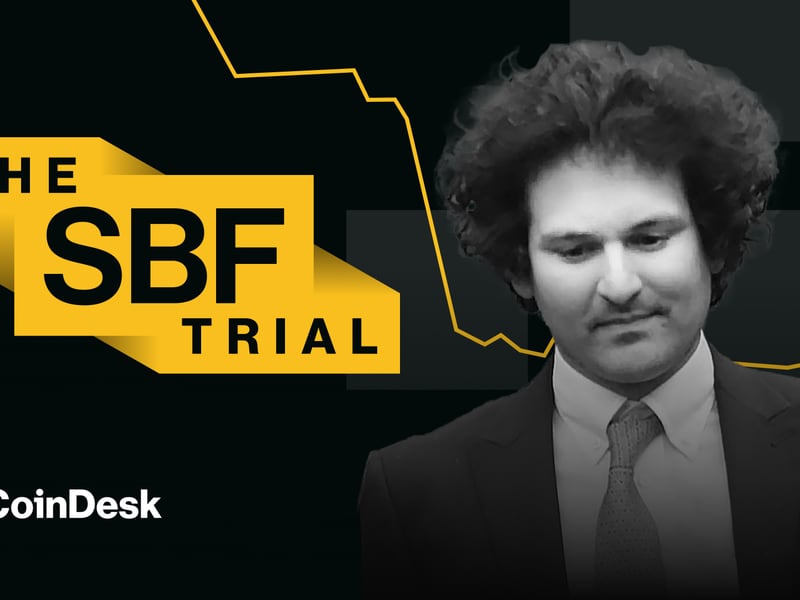Crypto Foe and SEC Chair Gary Gensler Will Quit When Trump Takes Office
U.S. Securities and Exchange Commission Chair Gary Gensler — a frequent foe of the cryptocurrency industry — said he will fully leave the agency the day Donald Trump becomes president in January.
He’s not just stepping down as head of the main U.S. securities regulator. He will also not stick around as a commissioner, meaning he won’t be around to defend his regulatory policies, which have included an aggressive stance toward crypto.

02:35
Trump Considers Crypto Lawyer for SEC Chair, Picks Howard Lutnick for Commerce Secretary

01:25
Bitcoin Posts New ATH Amid BlackRock’s IBIT Options Launch

18:04
Why the TON Ecosystem Could Be Crypto’s Dark Horse in 2025

02:02
BlackRock’s IBIT Options Launch on Nasdaq
Gensler’s resignation will be effective at noon on Jan. 20, the moment President-elect Trump is sworn in, the SEC said in a press release.
In a statement, Gensler called the regulator “a remarkable agency.”
“The staff and the Commission are deeply mission-driven, focused on protecting investors, facilitating capital formation, and ensuring that the markets work for investors and issuers alike. The staff comprises true public servants,” he said. “It has been an honor of a lifetime to serve with them on behalf of everyday Americans and ensure that our capital markets remain the best in the world.”
The statement went on to thank President Joe Biden and Gensler’s fellow commissioners.
Gensler, who took office in April 2021, oversaw a number of enforcement actions and rulemakings directly affecting the crypto industry. Though industry participants hoped he would offer a light-touch approach to crypto, the regulator instead expanded its enforcement actions from targeting crypto issuers, as it did under former SEC Chair Jay Clayton — who served under Trump — to instead filing suit against crypto trading platforms.
The SEC sued Binance, Binance.US, Coinbase, Kraken, Shapeshift and others during Gensler’s tenure, alleging the exchanges were unregistered securities brokers and clearinghouses.
Gensler also oversaw the first approval of spot bitcoin and ether exchange-traded products, after a decade of crypto companies trying to introduce these products to U.S. markets. He initially opposed them, but a court ruling against the agency pushed him to vote alongside the five-member commission’s two Republicans to ultimately approve the ETFs.
Trump has not yet named his nominee to succeed Gensler as SEC chair. A number of individuals have been floated, including former SEC and now private practice attorney Teresa Goody Guillén, former Acting Comptroller of the Currency Brian Brooks — who also briefly ran Binance.US — and a number of others. Trump’s SEC chair, Clayton, has been named as the next president’s U.S. Attorney for the Southern District of New York — the Department of Justice branch usually associated with prosecuting corporate crimes.
In Gensler’s absence, the commission will have two members from each party, not yet allowing a three-member Republican block until Trump’s future appointment is confirmed by the Senate. Until the GOP has a majority at the commission, major policy shifts or enforcement decisions may have to wait.
In the SEC’s press release, Gensler said his work built on Clayton’s, including with the lawsuits alleging registration violations.
“In the last full fiscal year, according to the SEC’s Office of the Inspector General, 18 percent of the SEC’s tips, complaints, and referrals were crypto-related, despite the crypto markets comprising less than 1 percent of the U.S. capital markets,” the press release said. “Court after court agreed with the Commission’s actions to protect investors and rejected all arguments that the SEC cannot enforce the law when securities are being offered — whatever their form.”
Still, Thursday’s announcement came hours after a federal judge in the Fifth Circuit ruled that the SEC’s effort to expand the definition of a “dealer” exceeded its authority in a lawsuit brought by crypto lobbyists.
Edited by Nick Baker.
Disclosure
Please note that our
privacy policy,
terms of use,
cookies,
and
do not sell my personal information
have been updated
.
CoinDesk is an
award-winning
media outlet that covers the cryptocurrency industry. Its journalists abide by a strict set of
editorial policies.
CoinDesk has adopted a set of principles aimed at ensuring the integrity, editorial independence and freedom from bias of its publications. CoinDesk is part of the Bullish group, which owns and invests in digital asset businesses and digital assets. CoinDesk employees, including journalists, may receive Bullish group equity-based compensation. Bullish was incubated by technology investor Block.one.
:format(jpg)/www.coindesk.com/resizer/BETd9o0r2OHtd2vT2ZqY9QPrJps=/arc-photo-coindesk/arc2-prod/public/ODFQHDRZFJG7XNVO7P6PUYMWS4.png)
Nikhilesh De is CoinDesk’s managing editor for global policy and regulation. He owns marginal amounts of bitcoin and ether.
Follow @nikhileshde on Twitter
:format(jpg)/www.coindesk.com/resizer/x37dWM_1ORxU2nCUG8EyVsmvF4Y=/arc-photo-coindesk/arc2-prod/public/3CZRUU6QWVDQ5PSXCNWHUB6CY4.png)









